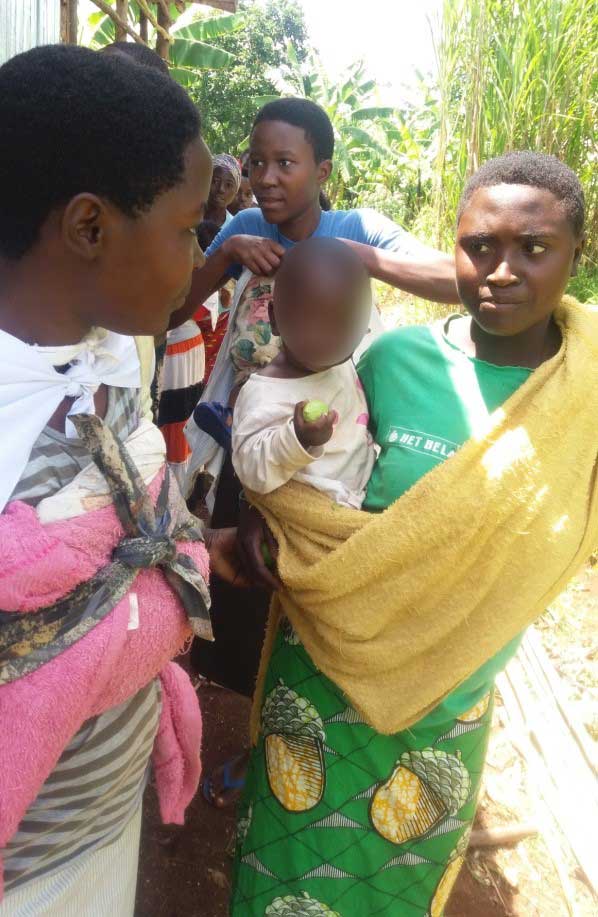About
Paving the way for girls
KEEPCARE RWANDA
The idea of founding an organization to support adolescents came in 2007. As its name implies, KEEPCARE RWANDA means that all adolescents have access to and equity in quality healthcare to ensure their bright future. KEEPCARE RWANDA was officially founded in February 2014, when Huye and Nyaruguru districts signed a collaboration letter; in 2017, it got a provisional registration certificate from the RGB, and finally in 2018, it obtained legal personality. The organization was born in Huye city because it was observed that many teen mothers were living in worse life conditions, experiencing sexual gender-based violence, exploitation, abuse, and getting early unwanted pregnancies. Adolescent pregnancies increased from 6.3% in 2010 to 7.3% (n = 818) in regard to the keetotal number of pregnancies in 2015. The highest percentage of adolescent pregnancy was observed in Huye District (14.2%).
KEEPCARE set a vision of building a better world for teenagers free of gender-based violence and inequality, where both girls and boys have equal rights and opportunities. Its mission is to improve the lives of vulnerable teenagers through socio-economic empowerment, eradicate sexual gender-based violence, and prevent unwed teenage pregnancies. The organization’s development was lifted by strategic interventions such as supporting teen mothers, engaging the community, and setting up youth-friendly models (KEEPCARE CLUBS) in and out of school (9 and 12 YBE). The funding from USAID through the TWICECEKA activity also boosted the organization’s growth, as well as its partnership with Kansas State University, US Embassy in Rwanda, Hennie and Rob, Africa International Club, UNDP and Women for women International.
Vision
- Build a teenager-friendly society free of gender-based violence (GBV) and inequality, where both girls and boys have equal rights and opportunities.

Strategic Intervention Area
- Gender equality promotion and ending GBV against teenagers
- Economic empowerment of teenagers
- Sexual reproductive health and rights
- Social protection
Mission
- Improve the lives of vulnerable teenagers through socio-economic empowerment, eradicate Gender-Based Violence and prevention of unwed teenage pregnancies.
Our Focus

Why KEEPCARE focus on teenagers?
Young people’s sexuality may cause some problems if it is not properly handled. Most teenagers do not use contraceptives in Rwanda.. That may result in unwanted pregnancies.
In most sub-Saharan countries, at least 10% of single teenagers of 18 years get pregnant unwillingly due to lack of information about reproductive health (Uwibambe, 2004).
Unmarried mothers encounter more difficulties than married mothers. They receive less support from their families and communities, and have often fewer resources to bring up and educate their children.
In almost all societies in the world, sex is the topic that is least spoken about by members of a family. Teenagers who experience physiological and other changes often find it difficult to discuss this experience with their parents and /or siblings (Bezuidenhout, 2004). In need of information, teenagers turn to their peers for guidance or seek information from books, magazines, articles, video and the like. Some information obtained from these sources is incorrect, incomplete and increases the risk for young people.
Unwanted pregnancies are a social problem that has existed for a long time in many societies as well as in Rwanda for the young girls. During pre-colonial time, in Rwanda, pregnant girls were ostracized and taken to Ijwi Island (island located in Kivu Lake separating Rwanda and the Republic Democratic of Congo). The majority of those girls died because of precarious conditions such as lack of food and medicine. Others by chance could find husbands from Congo and stayed there.
Likewise, Bezuidenhout (2004) observes that early pregnancies can give rise to incessant problems between parents and pregnant girls. Moreover, they cause problems to those teenagers themselves and to their children. They even cause many problems related to social prejudice, psychological trauma, depression, etc.
KEEPCARE RWANDA addresses the marginalization and unique challenges facing girls from gender discrimination and inequality in education to a lack of opportunity in business to assaults on their safety and dignity from gender-based violence.
We stand for alleviating these challenges and to empower girls socially, and economically.
Paving the Way for Girls Entrepreneurs
KEEPCARE speaks up the role girls play in a nation’s economy, how gender bias creates obstacles for girls starting new businesses, and strategies and tools to address certain types of gender discrimination including negative gender stereotyping that can keep girls from succeeding in business and the workplace.
Ending Violence against Girls teenagers
Gender discrimination is defined as prejudice or discrimination based on a person’s sex or gender. It affects both men and women, but primarily women. It is linked to stereotypes and gender roles and may include the belief that one gender is intrinsically superior to another.

We are a non-government organization that works to improve the lives of vulnerable teenagers through social-economic empowerment and building support for gender equality among teenagers.
Quick Links
OUR PARTNERS
-

- US AID
-

- RWAMREC
-

- Rwanda Governance Board
-

- MenEngage
-

- Mandela Washington Fellowship
-

- Love Alive International
-

- Kansas State University
-

- Department of State, US
-

- Women for Women
-

- Hennie and Rob
Website Developed by Success Arena










